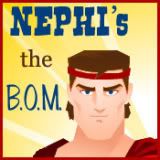

The Door of Opportunity
From Music and The Spoken Word
Delivered By: Lloyd D. Newell • Program 4099
In the early years of the Revolutionary War, things did not look good for the fledgling American navy. In a period of three months, they had lost seven ships, including their two largest. In the midst of the gloom, however, was a shining light: Captain John Barry.
He was so successful with his first military command that he was promoted to captain a frigate still under construction. While waiting, he volunteered to serve in the army during a bitterly cold winter. But his frigate was never completed, leaving Barry a captain without a ship.
Meanwhile, enemy transports were sailing unchallenged along the Delaware River resupplying their forces. Not content to wait for another ship to command, Captain Barry proposed a daring plan—to take a few of the rowboats from some of the larger ships, mount small cannons in their bows, and challenge the enemy transports.
Many thought the idea of outfitting what they called “washtubs” and sending them against armed ships was foolish. But Barry felt confident he could do it, and he was right.
Because Barry’s boats were small, they were able to escape enemy fire. The cannons on the rowboats hit their mark, and Captain Barry’s brave little fleet forced three British ships to surrender.
By the end of the war, Barry had captured more than 20 ships. As a consequence of his bravery and leadership, he was later named chief naval commander and is widely recognized as the father of the American navy.
It’s easy to become discouraged when the storms of life bring misfortune or distress. But Captain John Barry knew that adversity often opens the door of opportunity. He recognized it, acted on it, and, as a result, became a national hero.









No comments:
Post a Comment